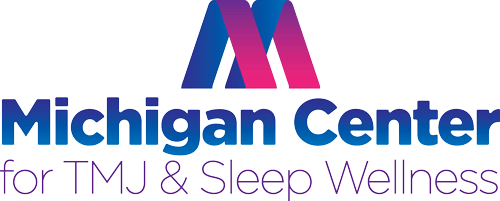TMJ-Friendly Sleep Apnea Treatment Detroit
Because sleep apnea and TMJ are closely related, it’s possible that sleep apnea treatment can cause or worsen TMJ. At the Michigan Center for TMJ & Sleep Wellness, we understand this connection and work hard to ensure optimal fit for our oral appliances. Your sleep apnea appliance can even be fitted to do double-duty to help treat your TMJ.
If you are looking for comprehensive sleep apnea treatment
that won’t cause TMJ or other bite-related problems, please call (248) 480-0085
or email
the Michigan Center for TMJ & Sleep Wellness for an appointment with Detroit sleep dentist
Dr. Jeffrey Haddad.
Is Your Sleep Appliance Properly Fitted?
Sleep Dentistry and Neuromuscular Dentistry Are Independent Disciplines
Some sleep dentists are thoroughly trained in the full discipline, which should include an understanding of the relationship between the airway and the jaw joints. However, many sleep dentists may have limited training in sleep dentistry which does not include how to properly fit a sleep appliance that doesn’t contribute to TMJ.
Other dentists may not be cautious enough in their approach to sleep apnea treatment. They might not pay attention to the impact that sleep appliances have on the jaw system. Your dentist should take measurements of your bite with and without the sleep apnea appliance in, including a measure of the muscle activity present. This will show whether the oral appliance is really putting your jaw in a healthy position so you can avoid TMJ related to your oral appliance.
CPAP Can Also Cause TMJ Problems
Sometimes, people are urged to try CPAP
instead of an oral appliance to avoid potential jaw or bite problems, but CPAP can also contribute to TMJ.
Studies have shown that prolonged use of CPAP masks can cause significant bite changes by compressing the face. The CPAP mask can also push the jaw backward. The airway may be held open by air pressure, but the jaw itself is being further displaced, contributing to jaw pain and other TMJ symptoms. And many CPAP systems have their own mouthpiece, which must be properly fitted to avoid jaw joint problems.
And, of course, even if CPAP doesn’t cause bite problems, it may not help them, either, and it may prevent you from wearing a bite splint to treat your TMJ.
When you are considering sleep apnea treatment, you need to consider the impact it may have on your bite and the health of your temporomandibular joints. If you are looking for a sleep dentist in Detroit who is also trained in neuromuscular dentistry, please call (248) 480-0085
or email
the Michigan Center for TMJ & Sleep Wellness today.


